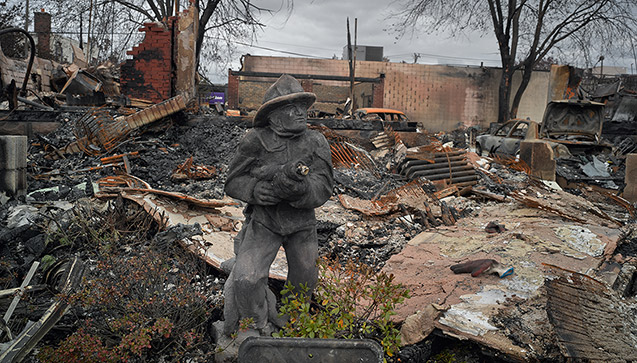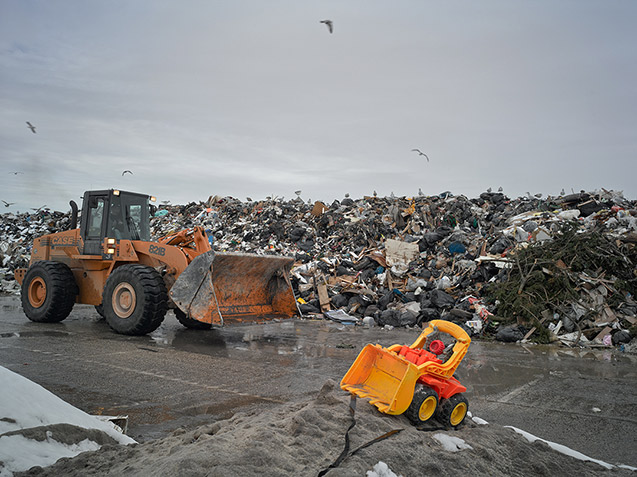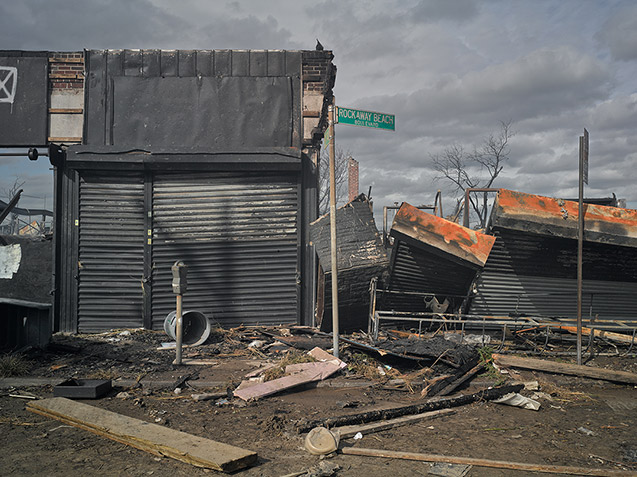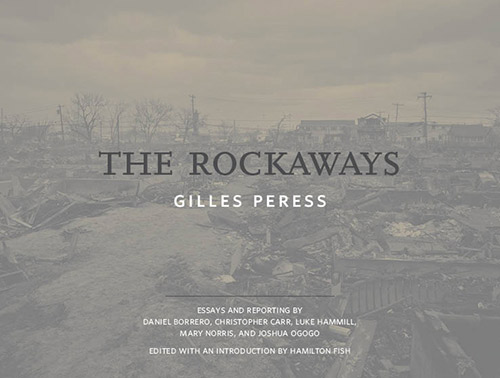
“The Concord Free Press is a counter approach to the way every aspect of the mainstream book industry is monetized,” Stona Fitch, founder of the project, told Truthout. “Our publishing model is focused on generosity. In fact, if generosity had a currency, this is what we traffic in.”
Since 2008, Fitch (who describes himself as half fiction writer and half activist, including the creation of a large-scale organic farm in Massachusetts to feed those in need of food) has headed a revolutionary initiative run out of a cramped office in legendary Concord, just outside of Boston.
Simply put, Fitch recruited artists, writers, photographers, editors, publishers and volunteers to produce high-quality books distributed for free in limited editions. In return, the reader is asked to do three things: 1) donate to a charity; 2) record the donation on the Concord Free Press web site (each book is numbered), where the list of contributions are kept; and 3) pass the book to another reader who will continue the cycle.
Fitch recalled the moment he told his wife, Ann, fiction editor of the press, about his paradigm-shifting idea. She responded: “I think you’ve found a novel new way for writers not to make money.”
The current Concord book, The Rockaways, was just released via independent book stores, on the Internet and through other venues. It will be distributed until the run of 3,000 is exhausted. Fitch believes that art and literature belong to the masses as much as the great cultural institutions. He regards books that he is sending to the Boston Fine Arts Museum and Roger’s Irish Tavern in Rockaway to have equally valuable audiences, he told Truthout. “When I find someone who wants to be part of this venture, it’s an incredible gift,” Fitch said.
The Rockaways is a stunning archival witness to Hurricane Sandy, which hit the East Coast on October 29, 2012, and devastated an isolated New York City geographical tail of land extending into the Atlantic Ocean.
 (Photo: Gilles Peress, Magum Photos)
(Photo: Gilles Peress, Magum Photos)
The book provides a glimpse into the isolated decimation of the Rockaways, technically part of Queens (but situated as a narrow peninsula mostly below Brooklyn, sandwiched between Jamaica Bay and the Atlantic Ocean.) Joshua Ogogo, 15 at the time of Hurricane Sandy (still a student at Scholars Academy High School in Rockaway Park), writes one of the essays that follow the jarring photographs of destruction contained in The Rockaways, from which this excerpt is taken. He wistfully and eloquently pays tribute to his destroyed community:
Rockaway is the beautiful golden sand that creates everlasting memories. The baby blue sky that provides a habitat for the sun to shine and the clouds shape shift. The pitch black sky that allows the moon to glow and the stars to shine bright. The ocean that glistens as the sun rays have contact on the water, the ocean that possess the ability to be calm but can be deadly and horrific.
Gilles Peress, an internationally famous Magnum Photos photographer, donated a series of mesmerizing, haunting images of the Rockaways shortly after Sandy subsided. Viewing them, one is paradoxically suspended between the exhilaration elicited by great art and the funereal images of neighborhoods mangled and flattened.
Peress writes of his photos in Rockaways, “Shooting pictures in Breezy Point (a neighborhood in the Rockaways) and Far Rockaway was transformational, a deep experience. The devastation [was] on such a scale, the pain is on such a scale, that I really [had] the feeling of entering into another dimension.”
 (Photo: Gilles Peress, Magum Photos)
(Photo: Gilles Peress, Magum Photos)
It is art that can create a shared sense of community – of artistic appreciation and generosity – in this case out of catastrophic climate change wreaking its havoc.
Hamilton Fish, one of the saviors of The Nation in the ’80s and a noted publisher (including The Nation Books and The Washington Spectator) edited and wrote the foreword to The Rockaways. He sees the book as a way for people to reconnect with the destructive effects of climate change and to move beyond the abstract “apocalyptic haze” and help those directly affected. Fish, however, talked with Truthout of the long-term challenge of preventing future hurricanes such as Sandy. He has organized a two-month series in New York City called “The Marfa Dialogues,” “a continuing examination of climate change science, environmental activism and artistic practice.”
The Rockaways is magnificently printed, pro bono, by the Kodak NextPress Digital Production Color Press. The quality of the reproduction is akin to attending a bound art exhibition. Fitch, Peress and Fish were assisted by a collective of creators, editors, writers, graphic designers, photographers, publishers and others, including the likes of an advisory board that includes Fish, Joyce Carol Oates, Russell Banks, Megan Abbott and so many more.
I, the writer of this article, am temporary owner of copy No. 41 of The Rockaways. I’ve made a contribution of $50 to Truthout for its ongoing coverage of the community efforts – many led by Occupy activists – to rebuild still-devastated communities. Soon I will be passing copy No. 41 to a friend who will make a contribution to one of the nonprofits listed toward the end of the book or a charitable recipient of her personal choice. And she will – in turn – forward it to someone who will participate in the community of valuing fine art, galvanizing writing and giving. Some of the books, Fitch tells us, travel around the world, being appreciated and promoting generosity.
Since its founding in 2008, Concord Free Press has printed free limited-edition books that have resulted in more than $325,000 of donations to causes as recorded on its website, with perhaps more than twice that philanthropically given by people who did not go online to report their financial good deeds – or perhaps their gift of volunteerism.
 (Photo: Concord Free Press)
(Photo: Concord Free Press)
You can obtain a free copy (if they are still available) of this stunning record of the impact of Hurricane Sandy, along with narrative accounts by clicking here. But remember, you are joining a community of art, generosity and activism. Fitch told Truthout that he is not going to enforce what charities or causes people give to: “One of the things people like is not being told what to do. We aren’t the charity police.”
It’s a collectors item to be sure, but it’s not to collect. It’s to send on the next stage of its journey.
All text and artwork from The Rockaways is the copyright of the Concord Free Press. All photos within the book are the copyright of Gilles Peress. Neither can be reproduced without permission of the Concord Free Press or Gilles Peress.
Join us in defending the truth before it’s too late
The future of independent journalism is uncertain, and the consequences of losing it are too grave to ignore. To ensure Truthout remains safe, strong, and free, we need to raise $46,000 in the next 7 days. Every dollar raised goes directly toward the costs of producing news you can trust.
Please give what you can — because by supporting us with a tax-deductible donation, you’re not just preserving a source of news, you’re helping to safeguard what’s left of our democracy.